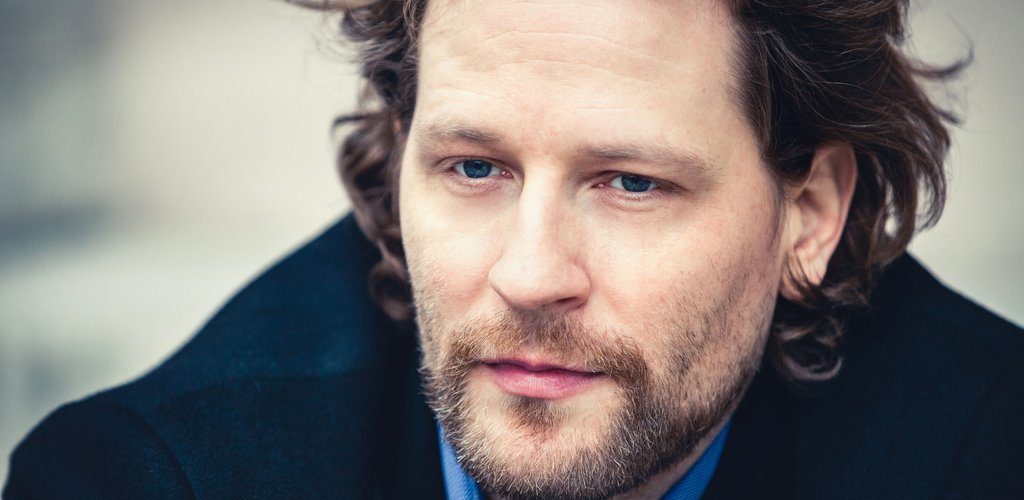Fischer began the evening by sitting down at a little desk next to the podium and briefly describing Bartók’s pioneering folk-collecting exploits in the early years of the last century, illustrating his talk with excerpts from the very Edison phonograph recordings (at least as transferred into modern digital technology) that the composer himself had made in the village inns of rural Hungary over a century ago, including the sign-offs where Bartók asked each singer to give his or her name and village.
A couple of these folk songs were then brought to modern life by one of today’s leading exponents of the music, Hungarian folk singer Márta Sebestyén, accompanied by three string players from the orchestra on folk instruments. The main surprise here was how much she embellished the tunes and also how free-wheeling they sounded, especially in the slower music, but as each number picked up speed, the rhythms got tighter and the melodies more and more governed by the distinctive snaps and iambs of Hungarian speech. Sebestyén’s nasal twang was certainly distinctive and even if we weren’t party to what she was singing about, her performance and her interaction with her fellow musicians at least gave us a hint. Maybe the Royal Festival Hall stage, with the quartet tucked into a gap within the seated orchestra, was not the ideal setting for such a display – it cried out for a smoky, rural Hungarian inn with the air full of alcohol and goulash.
But it gave a tantalising flavour, and to complete the menu, in between Sebestyén’s two extended numbers, Fischer conducted the whole orchestra in Bartók’s Hungarian Peasant Songs, formed from these same melodies and dance tunes. The BFO’s famed homogeneity of sound – not uniform but very much the sum of its parts – was on good display here, and the wind soloists in particular had a field day in the delightful melodies of the Ballade’s variations.
One doesn’t always think of Bartók’s only opera, Bluebeard’s Castle, as being one of his folk-music-inspired works. It dates from 1911, in the early days of his ethnomusicological studies, and is more a work derived from the turn-of-the-century Symbolism of Maeterlinck than the rustic realism that imbued the stage works of his friend and fellow folk-song collector Kodály. But when one hears Bartók’s opera sung in its original language one realises how bound up the composer’s melodic style already was with the rhythms and stresses of that language. As with Janáček’s Czech language, Bartók couldn’t have set his native tongue in any other way.
The effect was all the more vivid and striking for experiencing the opera in concert with two native singers from the Hungarian State Opera in Budapest. Of all operas, Bluebeard’s Castle survives best without the encumbrance of a theatrical setting. The sung text – and we were treated to some excellently translated surtitles – says everything that a physical set could show, especially the descriptions of the castle and of the views through the opened doors. And in any case, this is very much an interior drama, one that we explore along with the characters in real time as they reveal more about themselves – but without ever, it seems, providing the answers to what we are experiencing. That’s the elusive draw of this great work of art, brought to shattering life by some of its most experienced exponents here.
Ildikó Komlósi has already sung the role of Judith 150 times, and it showed in her complete identification with the character. This may have been ‘only’ a concert performance, but her singing – though subject to a certain amount of wobble under pressure – conveyed every nuance of the text as the insatiable curiosity of the new wife leads her to open successive doors on to Bluebeard’s true character. Bluebeard himself was sung with composure, detailed characterisation and sonorous richness by bass Krisztián Cser – very much a singer who on this basis I would travel to Budapest to hear again.
Fischer shaped Bartók’s great arch of a score with enormous authority – having given the opening poetic narration himself, addressing the audience while beating in the orchestra behind his back. One could sense the castle’s crepuscular gloom at the start and the finish, and the great, blinding C major blaze of the Fifth Door, as the view expands to encompass Bluebeard’s entire kingdom, made its usual impact at the arch’s apex. The playing of the BFO was spotless, rich in textural complexity and the overall impact as solidly and indestructibly built as the castle walls themselves.
